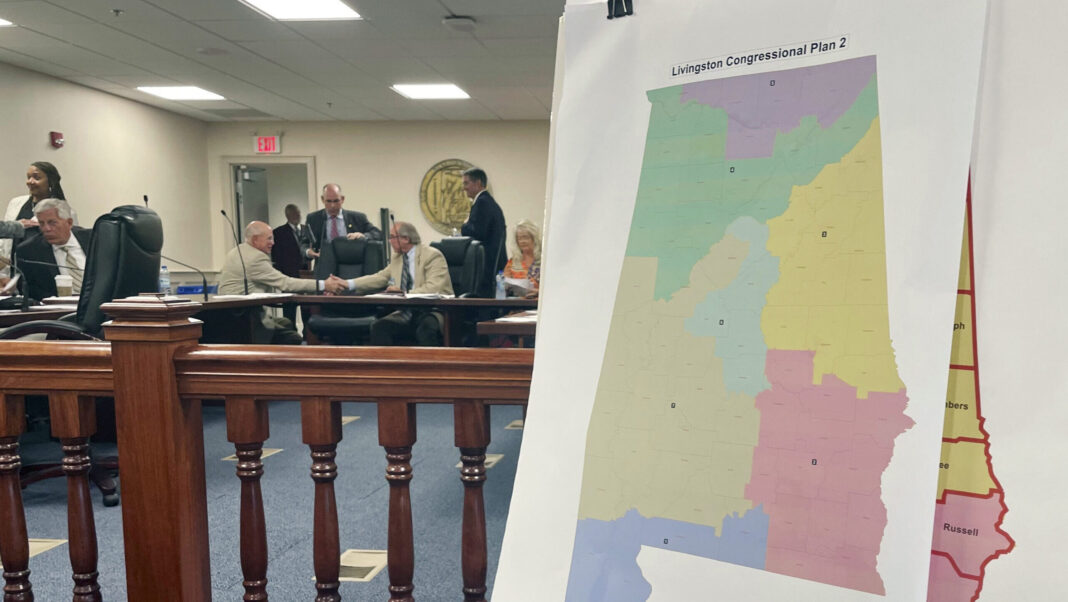Racial Gerrymandering Ruling: A Shift in Jefferson County’s Political Landscape
A federal judge has recently ruled that Jefferson County, Alabama’s largest county, must redraw its county commission map due to findings of racial gerrymandering. This landmark decision not only highlights ongoing issues of racial inequity in electoral representation but also opens the door for a possible shift in political power within the region.
The Ruling Details
U.S. District Judge Madeline H. Haikala stated that the commission’s district map was unconstitutional under the Fourteenth Amendment, maintaining that race was the predominant factor in the map’s creation. The 2023 lawsuit alleged that Black voters, who represent 40% of the county’s population, were unfairly “packed” into just two districts. This concentration severely limited their electoral influence in a county where diversity is significant.
Implications for Representation
This judicial intervention could fundamentally alter the balance of power in the Jefferson County Commission, which is currently made up of three Republican members and two Democrats. The decision seeks to ensure that every voice, particularly those of Black voters, is adequately represented in local governance. Lead plaintiff in the case, Cara McClure, emphasized the importance of equity in representation, expressing hope that the commission will engage in drawing a fair map that acknowledges and amplifies the votes of Black citizens.
The County’s Historical Context
Jefferson County has a rich and complex history, especially regarding civil rights. Notably, it was the site of the 1963 bombing of the 16th Street Baptist Church, an event that tragically underscored the struggles for racial equality in America. Today, this backdrop serves as an ongoing reminder of the importance of ensuring fair representation for marginalized communities. The county has transformed into a corporate and economic hub, driven largely by its banking and medical industries, but the echoes of its past linger in discussions about equality and justice.
Legal Perspectives
The ruling’s legal ramifications extend beyond this specific case. According to Kathryn Sadasivan of the NAACP Legal Defense Fund, the existing districting strategy not only packed Black voters into two supermajority districts but also aimed to maintain racial ratios across the remaining districts. This approach raised serious concerns under the Voting Rights Act, which mandates that electoral maps facilitate fair representation without compromising racial equity.
Judge Haikala pointed out that the commission could have substantiated its approach by proving that a higher concentration of Black voters was necessary to allow them to elect favorable candidates. However, the absence of such evidence weakened the commission’s defense, leading to the court’s decision.
Next Steps for Redistricting
In the wake of the ruling, Judge Haikala has ordered both the county and plaintiffs to develop a remedial redistricting plan within 30 days. Jefferson County Attorney Theo Lawson has indicated that they are currently reviewing the order to determine their next steps. The urgency of this action places significant pressure on local authorities to engage in a meaningful and inclusive redistricting process.
The Call for Accountability
McClure’s suggestion that “every voice and every vote is heard and counted” resonates strongly in a county where past injustices related to race and voting persist. The case serves as a wake-up call for officials to prioritize inclusivity and fairness in their decision-making processes, particularly in matters affecting local governance.
This ruling not only underscores the ongoing challenges surrounding racial representation in Alabama but also highlights the potential for meaningful change through judicial intervention and civic engagement. As Jefferson County navigates this pivotal moment, the pursuit of equitable representation remains at the forefront of community dialogues.



